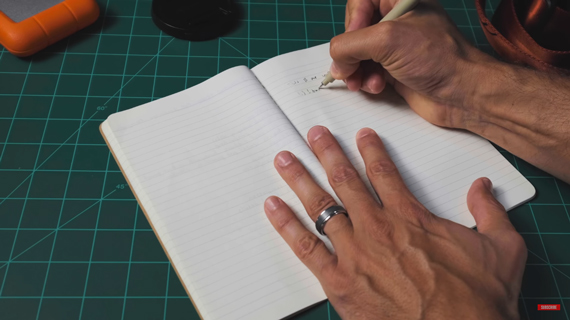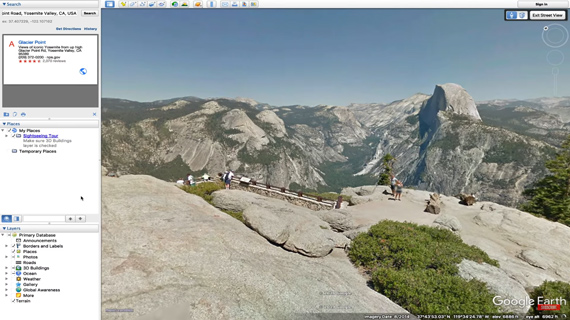Learning from experienced master photographers is a privilege. Photographer Mark Denney reviews the common habits and qualities that appear to have contributed to the successes of well-known landscape photographers:
1. Ability to Overcome Obstacles
Landscape photos come out great when the conditions are amazing. However, no matter how much you plan to shoot in “perfect” conditions, you cannot control nature. If you get lucky, you can end up at a spot with perfect weather and take gorgeous images. But what if the conditions aren’t supportive?
“The best landscape photographers out there understand when and how to adapt to whatever conditions they’re facing.”
Successful landscape photographers don’t just depend on good weather conditions for good photos. They also have the ability to change their thought process to get the best out of whatever conditions they’re presented with.
“Being able to adapt and overcome any kind of curve ball that’s presented to them is a fantastic quality that a lot of successful photographers possess.”
2. Desire to Improve
Successful photographers know what they’re good at and where they need to work harder. They strive to improve their areas of weakness but also their strengths. This helps in stepping up their entire landscape photography game.
“They live with that constant desire to improve all the time. Their work is never good enough. Their work can always be better. That strive for perfection is something that really got some of the best landscape photographers to the level that they’re at today.”
You must have a desire for continuous improvement. Being happy with what you’ve achieved is one thing, but always seek ways to improve yourself.
3. Post-Processing Skill
Good photographers also have a processing workflow that reflects their style. The post-processing style can be so distinct that you can distinguish the artist just by looking at the editing style. But, you cannot develop style overnight.
“That type of an editing style is something that is very powerful and is hard to create. It takes years to do.”
However, this doesn’t mean that editing should be over-the-top to make the image stand out. It actually needs to be subtle.
“The edit should be a complementary factor that works with the photograph.”
4. Curiosity
Do you ever get bored with shooting the same landscape multiple times? Good landscape photographers don’t feel that way, even though they might’ve been to the same location many times before, they never lose that sense of excitement and curiosity.
“Being able to see something familiar but see it in a new way is a very powerful characteristic to have.”
If you lack a sense of curiosity, you might just end up with similar-looking images time and again in the same location. To avoid this, you really need to be curious. Try new compositions. See how a change in perspective affects the final image. Don’t give up easily.
5. Organization
You may be very good at organizing your gear, but how good are you at organizing your thoughts and ideas? You might come across dozens of ideas in a day, but if you don’t get them out of your head and keep them organized either in a notebook or digitally, chances are that you’ll forget about them.

“Photography, much like any type of art, is very cerebral.”
Taking a single photo can involve a complicated thought process. Keep your thoughts organized. Here are some of the things that you can write down:
- notes from a shoot
- future location ideas
- things that inspire you
“Whatever it is, get those ideas out of your head and document them somewhere in an organized way.”
6. Preparation
“The level of detail great landscape photographers look at and pay attention to when preparing for a shoot is absolutely off the charts.”
While most of us would arrive on-location with a camera, ready to shoot, great landscape photographers would arrive there just to get to know the place better. Their sole purpose would just be to scout out locations and document the information. For actually taking the photos, they’d come back some other time when conditions were best.

Being prepared this way greatly reduces the actual working time and makes you more efficient.
7. Practice
No one becomes good at taking photos overnight. Like any other skills, photography needs a lot of patience and practice to master. Spend time understanding your gear. Learn ways to make the best of situations that aren’t in your favor. Invest your time in practical learning. Watching videos and reading articles or books are great ways, no doubt, but nothing beats taking a camera with you and going out to shoot.
“Life gets in the way and it’s hard to get out there and shoot all the time, but just try and make it a priority to get out there and practice.”
Go to full article: Landscape Photography: 7 Habits for Success
What are your thoughts on this article? Join the discussion on Facebook
PictureCorrect subscribers can also learn more today with our #1 bestseller: The Photography Tutorial eBook
The post Landscape Photography: 7 Habits for Success appeared first on PictureCorrect.
from PictureCorrect https://ift.tt/2Ze7GFw
via IFTTT






0 kommenttia:
Lähetä kommentti